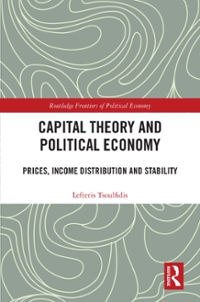Question
title: Price Control Won't Help course: economic and society question: read and simplify Policies are designed to address issues, often with good intentions. However, the
title: Price Control Won't Help
course: economic and society
question: read and simplify
Policies are designed to address issues, often with good intentions. However, the most difficult thing in designing policies is that they imply a balanced analysis of the trade-offs to avoid a worse outcome than the initial problem. Price controls are usually introduced to curb rising prices during emergencies or in specific industries. As the Covid-19 crisis continues in Malaysia, the government has imposed a maximum price control scheme on essential items, starting from April 15 until the end of the Movement Control Order (MCO) period. I believe that price control is not a good measure to reduce the upward movement of prices during a period of emergency. This is all the more true under the current scenario, where the eventual upward movement of prices is not dictated by a shortage but is the consequence of the policy designed to contain the spread of Covid-19. In the present situation, producers are ready to meet the pressure coming from the demand if they could do so. In order to understand my point, it is important to be clear about what prices are. "A price is a signal wrapped up in an incentive." (Alex Tabarrok and Tyler Cowen, Modern Principles of Microeconomics). This means that, if the price of a certain item is rising, the market is signaling to producers that more profit opportunities are waiting to be exploited (incentive). To the supplier, the deep reason behind the upward movement is of little importance, but they need to know that this movement is happening to react accordingly. Under the MCO, consumers had to reshape their habits, and the biggest shift was more Malaysians eating at home, and therefore, they needed to buy more food from the supermarket. This tendency was accompanied in particular at the beginning of the so-called lockdown by a natural tendency to hoard food, driven by the fear of a progressively deteriorating situation. The increasing demand is pushing some prices upward. The phenomenon is amplified by the supply chain disruptions created by the MCO itself if the demand for eggs increases, pushing up prices. Still, the supply cannot easily adapt because, for example, if some collateral products such as packaging are not available, then that upward price movement will be further exacerbated. With price controls, the government is showing its intention to intervene to protect people's purchasing power. Unfortunately, good intentions do not always lead to the desired outcomes and economic science often warns us about the importance of unintended consequences. In fact, price controls would make things worse. With rising prices, suppliers receive the information that there is more demand for a product and can do what is in their power to meet that demand and get higher revenue. With new supplies entering the market, the upward tensions can be mitigated, and eventually, prices can go back to their original levels, or even drop if the supply grows beyond the actual demand (pushed by the initially rising prices). Such a readjustment process does not happen overnight, and neither is it perfect. It takes time and evolves in steps. The interaction between the supply and demand curves explained in economics textbooks hints at the direction but does not render justice to the complexity of the underlying process. However, although prices need to be allowed to grow for a certain period for the market process to complete its readjustment process and the outcome will never be perfect, such an outcome is still better than the alternative price controls. If rising demand, pushing prices upward, is met by price ceilings, suppliers will not get the signal that more of a product is in demand and will not receive the incentive from that signal. Therefore, they will not adjust their supply because the ceiling is blocking prices from playing their information transmission function. The result is that part of the demand will remain unsatisfied, which means, in less technical terms, empty shelves. Moreover, letting prices freely adjust to the new context presents a few more advantages: (i) Market-determined prices do not need any legislation or enforcement mechanisms, while government price controls require enforcement mechanisms and prosecution, which can be costly and time-consuming. (ii) Higher market prices will discourage the hoarding impulse that emerged at the beginning of the MCO and conservation is encouraged. By keeping prices artificially low, precisely the opposite happens. (iii) Higher market prices will drive the supply to react as quickly as possible. Knowing that in economic policy there are no silver bullets, here we have two alternatives: allow prices to temporarily grow to attract that additional supply that can ignite a price readjustment process, or keep prices artificially low with the serious risk of a growing number of empty shelves.
Step by Step Solution
There are 3 Steps involved in it
Step: 1

Get Instant Access to Expert-Tailored Solutions
See step-by-step solutions with expert insights and AI powered tools for academic success
Step: 2

Step: 3

Ace Your Homework with AI
Get the answers you need in no time with our AI-driven, step-by-step assistance
Get Started


